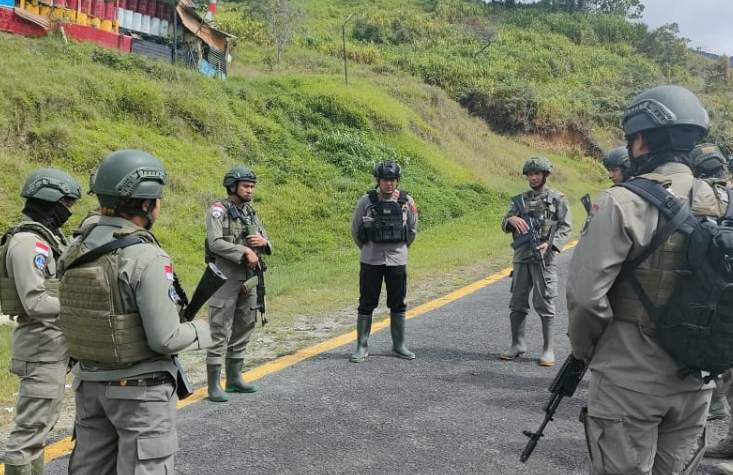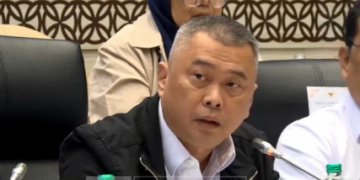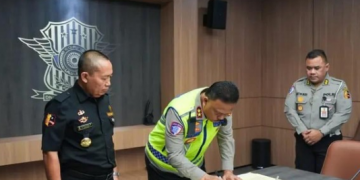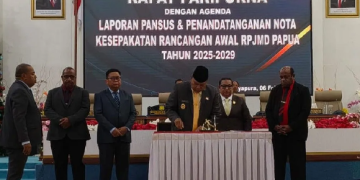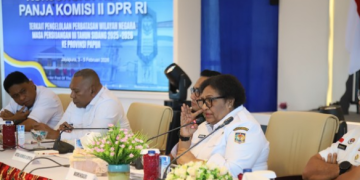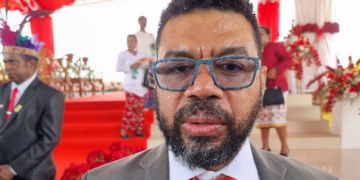Papuaaround.com – Papua is currently facing a complex security threat marked by two distinct but equally significant threats: violent actions from armed groups and a growing ideological movement. This dual challenge was outlined by the Peace Operation Task Force (Satgas Damai Cartenz), which continues to monitor and respond to the evolving situation in the region.
Brigadier General Faizal Ramadhani, Head of Operations for Satgas Damai Cartenz, stated on Sunday, July 20, 2025, that the situation in Papua is shaped not only by the aggressive acts of Armed Criminal Groups (KKB) but also by the strategic ideological movement of what he called Political Criminal Groups (KKP). These two forces, he emphasized, require precise and calculated responses from the state security apparatus.
The KKB has long been associated with acts of violence, targeting both security personnel and civilians. Using firearms and intimidation, these groups have disrupted local stability and instilled fear within communities. Their operations are often overt, with the aim of undermining the state’s presence through brute force.
In contrast, the KKP represents a more covert but structured threat. According to General Faizal, this group operates through intellectual discourse, public demonstrations, and digital propaganda. The objective is to foster separatist sentiment and ultimately detach Papua from the Republic of Indonesia. “While the KKB poses a physical threat, the KKP attacks the ideological foundations of Papua’s youth,” Faizal explained.
What makes the KKP particularly dangerous, he added, is its long-term strategy. Through systematic recruitment, ideological indoctrination, and the creation of counter-narratives, this movement seeks to reshape public perception. The KKP is said to have an extensive network both domestically and internationally, which allows it to amplify its message beyond Indonesia’s borders.
Organizations such as the West Papua National Committee (KNPB) and the United Liberation Movement for West Papua (ULMWP) are noted as central actors in this campaign. These groups engage in international lobbying efforts and work closely with Papuan student diasporas abroad. At home, they are reportedly linked to student networks like the Papuan Student Alliance (AMP), which is active across major university cities in Indonesia.
The exploitation of sensitive issues is another strategy frequently used by the KKP. Topics such as racism, alleged human rights violations, and criticism of government programs are often used to stir public discontent. Strategic initiatives including food security, free nutritious meal distribution (MBG), and the creation of new autonomous regions are often framed as forms of state oppression, according to Faizal.
“There is a growing volume of disinformation and provocative narratives on social media misrepresenting these initiatives as tools of neocolonialism,” he said. “In reality, these programs are designed to uplift the well-being of the Papuan people.”
As the threat in Papua continues to evolve, both physical and ideological dimensions remain central to the challenge. Authorities maintain that any response must be multidimensional—combining security operations with strategic communication and community engagement to counter both violence and ideological influence.

